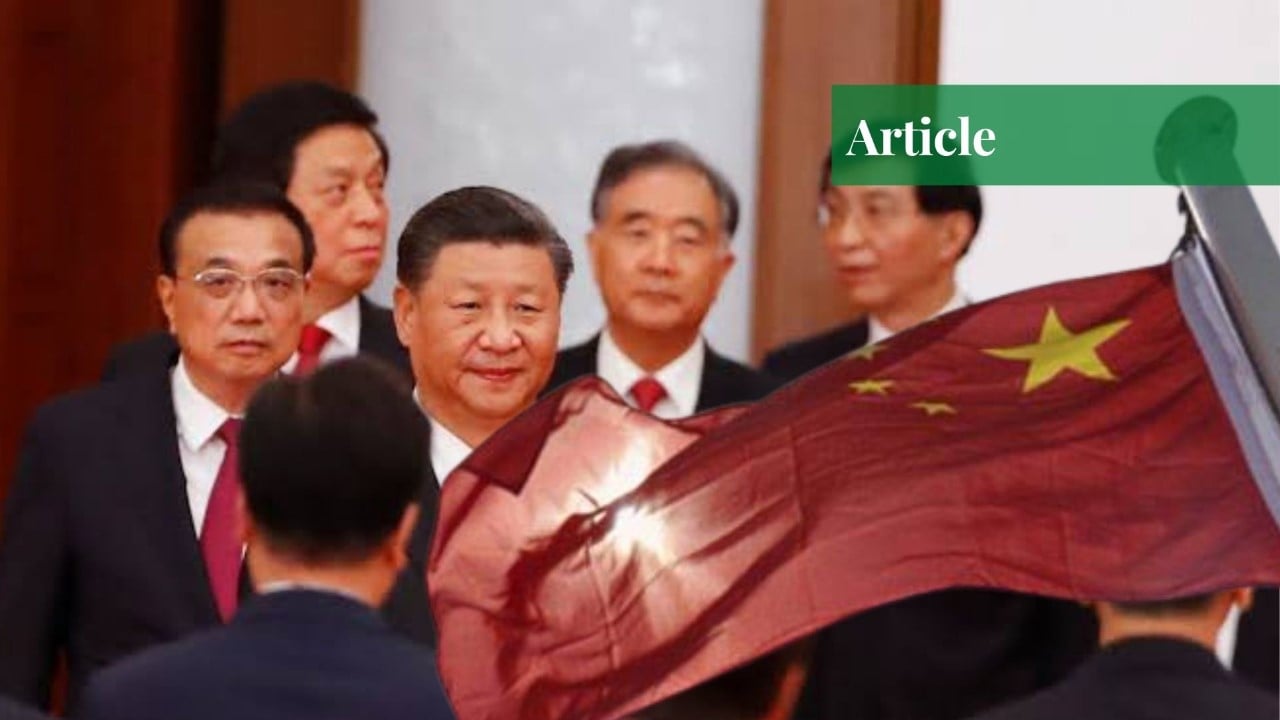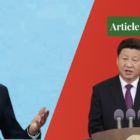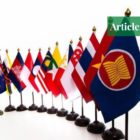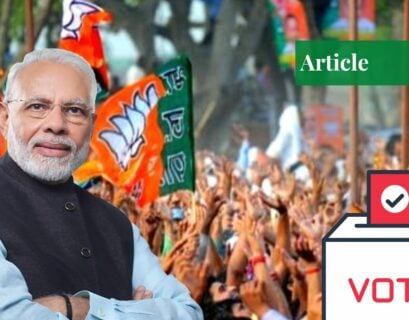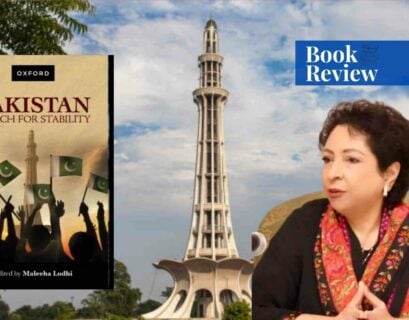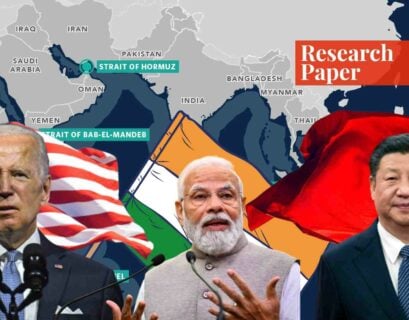Introduction
In 2018, China’s National People’s Congress made an amendment to the constitution that removed the limit on terms of the presidency. President Xi Jinping of China, who’s also the leader of the communist party of China, has his eyes on the 2022 National Party Congress in which he will be reappointed as party leader. The American policy elite started engagement with China with the purpose that China will become a democratic nation with time but this policy has failed.
China introduced economic reforms but political reforms never occurred. If the American policy experts are asked why they believe so, they claim that democracy is standing on the right facet of history while all non-democratic systems are on the wrong side. China is not as simple as it seems. It has a long history of more than 2,000 years, with a complex social, political and economic system.
On the other hand, the United States of America was discovered six centuries ago and became independent about 250 years ago. Each dynasty among the eight dynasties of China lasted longer than the age of the United States of America. So how can such a small and younger country dictate and impact the political development of a country that outsizes the American population by four times and American history by ten times?
CCP and the People’s Republic of China
China has remained under central control for 2,200 years. Every time China was divided, the main reason for that political breakdown had always been the deterioration or weakening of central control. The biggest fear of Chinese people has always been chaos (Luan). If Chinese people are given the option of political chaos caused by competition between political parties or central control, they would choose central control.
Max Weber, a German political philosopher said, “It is not only true that good can only follow from good and evil from evil, but that often the opposite is true and anyone who says this is indeed a political infant”. Central control in China, under the Chinese Communist Party (CCP), is beneficial for the whole world due to the fact that it provides three global public goods to the whole world.
1. Controlling the Nationalistic Sentiment
The first public good, provided by CCP to the world, is the control on the nationalistic dragon of China. China faced the wrath of a century of humiliation at the hands of the Western powers and Japan, starting from the opium wars of 1839 which lasted till the creation of the People’s Republic of China (1949). Now, China has become the second most powerful country in the world but it has no intentions of taking revenge on countries that exploited it.
The nationalistic feeling is still alive in Chinese politics but the communist party of China reins in this nationalistic dragon. When the US started its engagement policy, Americans believed that China would be like them. Commenting on this belief, Graham Allison – the author of “Destined for War: Can America and China Escape Thucydides’s Trap?” – warned the Americans against this thinking.
China in the 21st century is like the US in the 19th century when it raised to the status of great power. If Teddy Roosevelt was in charge of the Chinese policy on the South China Sea, he would have occupied most of the reefs and rocks of the South China Sea. But China under CCP controls the least rocks and reefs in the South China Sea.
In China, only the best members climb to the top of the CCP ladder due to meritocracy. On the other hand, if China suddenly becomes a democracy and leaders like Roosevelt come to power, then China will act like an imperialistic and interventionist power rather than restrained under Xi Jinping.
2. A Pragmatic China
Under the central control of the CCP, China acts as a rational and pragmatic actor in solving global challenges. Considering the most existential threat to planet Earth—climate change—both the US and China are the main actors that will have to play a major role in limiting global warming. Both powers agreed, like responsible actors, and signed the Paris Climate Accord in 2015.
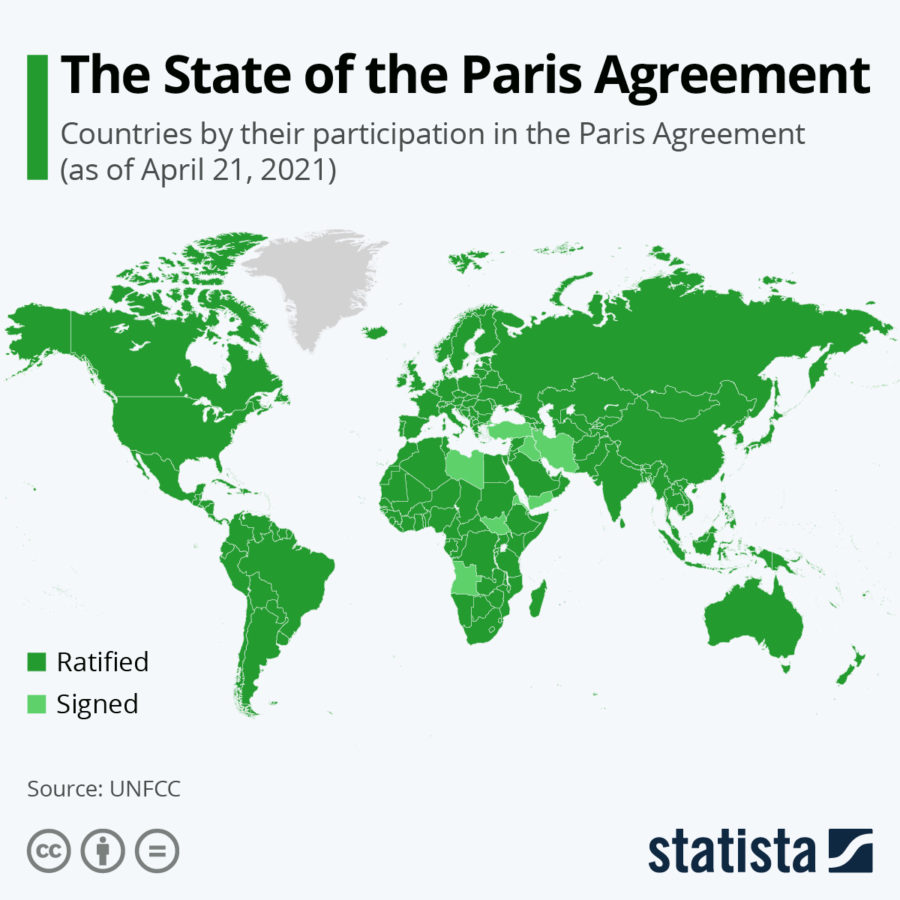
Donald Trump, who came to power in 2016 declared climate change a “myth” and withdrew from the Paris Accord in 2018. If China had been a democracy like the United States, under pressure from the opposition and other political groups, CCP might have withdrawn from the accord as well. China, led by the CCP, acted as a rational and pragmatic actor and did what was best for it as well as for the whole world.
3. Maintaining the Status Quo
China behaves like a status quo power under the Chinese Communist Party (CCP). If the emergence of China as a great power is compared and analyzed with the rise of the US and the USSR, then it is a fact that the latter states acted as revolutionary powers who tried to alter the international order according to their own values. The Marshall Plan and Truman Doctrine are examples of America’s interference in the internal affairs of other states.
Similarly, the Communist Information Bureau (Cominform) and the Council for Mutual Economic Assistance (Comecon) were used by the USSR to contain the influence of the US in countries of the Eastern bloc. It is a fact that as the power of the two rivals grew, both interfered more in the internal affairs of other states but this is the opposite in the case of China.
China interfered with other states, especially ASEAN states, from 1949 to 1978 along with the USSR to support communist parties in these countries. However, in 1978, the prime minister of Singapore, Lee Kuan Yew, informed Deng Xiaoping about the concerns of ASEAN (the Association of Southeast Asian Nations), and from there onwards, China stopped interfering in other states’ internal matters.
Although as a great power, China acts aggressively when its national interests are threatened, these actions are very much different from that of other great powers. For example, China sanctioned South Korea when the latter allowed the US to install a Terminal High Altitude Area Defense (THAAD) system in 2016.
China is the only power among the P5 members of the UN Security Council which has not fought any foreign war after the Second World War. The main reason for China being a restrained and status-quo power is that the focus of the CCP is on the prosperity of 1.4 billion Chinese not on control over the 6 billion people of the world.
Democracy vs China
The American public often wonders why the Chinese are not enjoying the freedoms that Americans enjoy. They argue that American society is flourishing, on the other hand, Chinese society is stagnant. Conversely, facts depict that the standard of living of the bottom 50% of Americans decreased while that of the Chinese increased sharply.
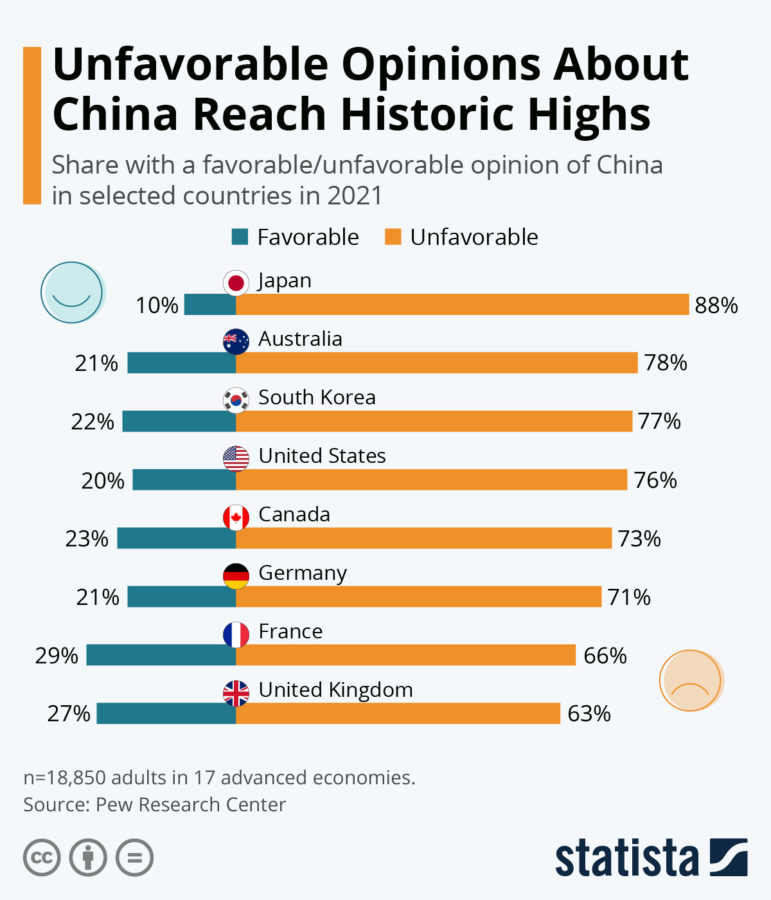
In addition to this, Americans argue that the Chinese are not enjoying political rights. But, Americans are not aware that the Chinese favor social harmony and well-being over individual well-being and rights. The communist party (CCP) is the only political dynasty in the 2,200 years of China in which the lower strata of society prospered. The Edelman Trust Barometer report of 2018 shows that when it comes to the public’s trust in the government, China is on top while the US ranks 15th.
Western political thought claims that when the middle class in any society grows, it demands political participation. If the government does not accept its demands, it overthrows that particular government but the case of China is different. China has the world’s largest middle class but still, there are no revolts in China.
The main reason for this is the social contract between the government and the public. As the Chinese consider that the emperor possesses the mandate of the heavens and as long as the emperor does not lose it, there will be no revolt. This is the teaching of Confucius. As long as the CCP delivers on an economic as well as political front, the middle class of China will not revolt.
John Maynard Keynes, an economist, said, “When facts change, I change my mind.” In international politics, the only fact which has remained unchanged in the past three decades is that many states which mimicked western democracy later realized that it does not suit their culture.
Americans have always preferred interests over democracy. The US has friendly relations with Saudi Arabia and other Arab states which have non-democratic political systems. Similarly, during the Cold War, to contain the Soviet Union, the US engaged with China. Americans believe that democratic states have a better form of government than non–democratic states and that democracy leads to prosperity.
So, if democracy leads to economic prosperity then why is the US promoting democracy in China with which it is involved in a great power competition? The answer to this question lies in the fact that democracies can weaken societies by causing political chaos. Chinese leaders are well aware of the fact that when leaders of a state become weak, the state fails. Hence, they are well acquainted with this Machiavellian scheme.
Conclusion
The persuasive argument is that China considers its government democratic. It proved this argument in the recently published white paper titled “China: Democracy That Works.” China argues that Western democracy is just one type of democracy. Whereas, true democracy is one in which people are considered a priority, which is happening only in China. All things considered, it can be claimed that the chances of Western-style democracy are bleak. China will keep its own form of democracy which it calls “socialist democracy”.
If you want to submit your articles and/or research papers, please check the Submissions page.
The views and opinions expressed in this article/paper are the author’s own and do not necessarily reflect the editorial position of Paradigm Shift.
